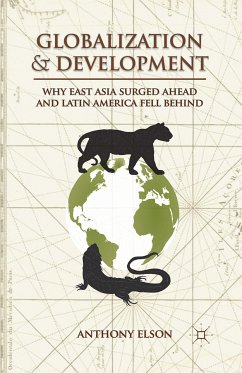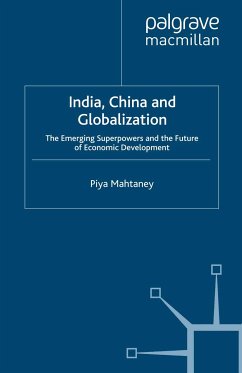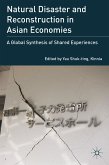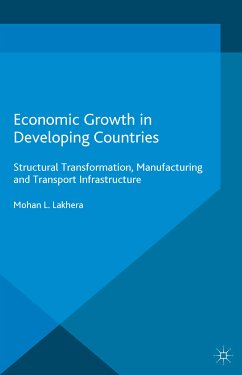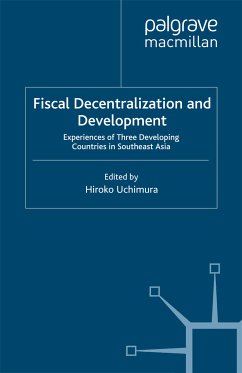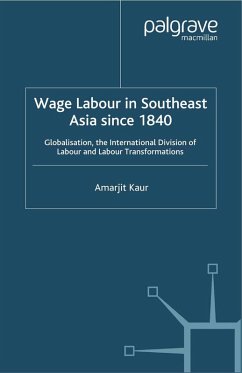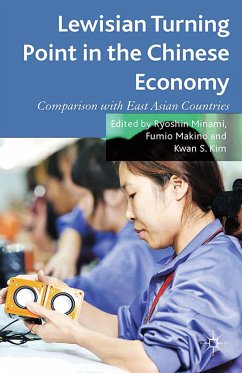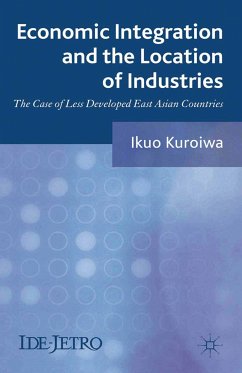Dieser Download kann aus rechtlichen Gründen nur mit Rechnungsadresse in A, B, BG, CY, CZ, D, DK, EW, E, FIN, F, GR, HR, H, IRL, I, LT, L, LR, M, NL, PL, P, R, S, SLO, SK ausgeliefert werden.
"Anthony Elson compares and contrasts the very different growth experiences of East Asia and Latin America, pulling together the evidence and critically examining the role that policies, institutions, history, and endowments played in influencing the development trajectories of these two regions. His extensive, varied career as an international economist with both the IMF and the World Bank, and his research and teaching on the economic and financial policies of both of these regions, uniquely enable him to explain their different development outcomes with a broad interdisciplinary vision and in a compelling, accessible way. This book will be of interest particularly to development practitioners and to students in economics, history, and public policy, but it deserves to be read much more widely as it yields valuable insights into the messy and unpredictable process of economic development." - Cory Krupp, Director of Graduate Studies, Master of International Development Policy, Sanford School of Public Policy, Duke University, USA
"Anthony Elson has written a book that should be required reading for all Latin American policy makers. He cogently identifies the failings of development efforts in the region, when compared to East Asia, and he correctly analyzes what needs to be done to 'catch up.' To avoid the failures of the past, decision-makers need to transparently protect property rights, develop competent bureaucracies, reduce inequality, upgrade basic physical infrastructure, and invest in technology and education. These are the Asian hallmarks of competitiveness and shared growth. Unless these issues are addressed, Latin America is condemned to live with the natural resource 'curse' that has plagued it for centuries." - Riordan Roett, Sarita and Don Johnston Professor and Director of Western Hemisphere Studies and Latin American Studies Program, Johns Hopkins School of Advanced International Studies, USA

